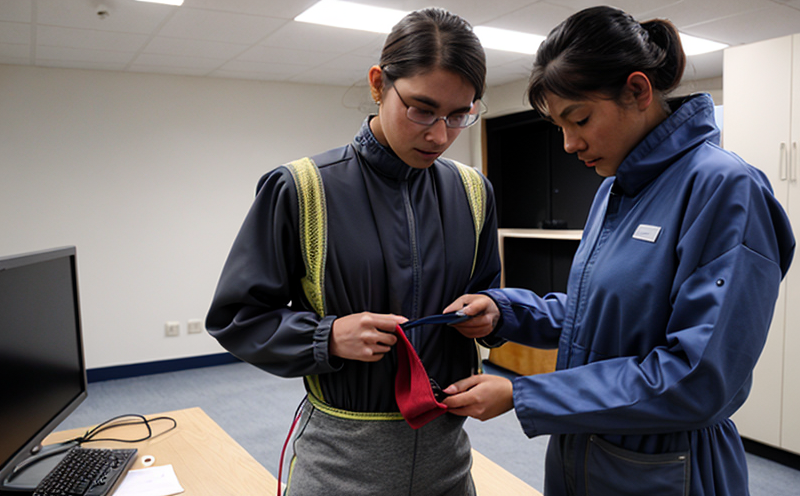JIS L1925 Ultraviolet protective properties of technical fabrics
The JIS L1925 test measures the ultraviolet (UV) protective properties of technical fabrics, which is crucial for materials used in various sectors such as outdoor equipment, automotive interiors, and medical textiles. This standard evaluates how effectively a fabric resists UV radiation by assessing its ability to block harmful UVA and UVB rays. Understanding this property ensures that products made from these fabrics provide adequate protection against skin damage caused by prolonged exposure to the sun.
Technical textiles are designed with specific functionalities in mind, such as moisture management, insulation, or structural integrity. However, they must also withstand environmental factors like sunlight, which can degrade their performance over time if not properly treated. The JIS L1925 test helps manufacturers ensure that the fabrics used meet stringent UV protection requirements set by international standards.
The testing process involves exposing samples of technical fabric to a standardized UV source for a specified duration under controlled conditions. Afterward, the changes in colorfastness and physical properties are measured to determine the degree of UV protection provided by the material. Compliance with JIS L1925 ensures that products perform consistently across different environments and applications.
| Parameter | Value |
|---|---|
| UV Source Type | Solar simulator (UVA-340) |
| Test Duration | 10 hours ± 2 minutes |
| Relative Humidity | 50% ± 5% |
| Temperature | 65°C ± 1.5°C |
The results of the JIS L1925 test are presented in terms of color change and loss of tensile strength, which indicate the extent to which the fabric retains its original properties after UV exposure. A lower percentage change suggests better UV protection performance.
Benefits
- Increased Product Lifespan: Ensures that technical fabrics maintain their integrity and functionality over extended periods, especially when exposed to sunlight.
- Better Consumer Safety: Provides assurance that products will protect users from harmful UV radiation, reducing the risk of sunburn or other skin issues.
- Enhanced Brand Reputation: Demonstrates a commitment to quality and safety, which can enhance brand loyalty and customer trust.
The JIS L1925 test not only helps in meeting regulatory requirements but also contributes significantly to the overall performance of technical fabrics. By ensuring that these fabrics meet this standard, manufacturers can confidently offer products that are durable, safe, and reliable for various applications.
Industry Applications
- Outdoor Gear: Technical textiles in tents, backpacks, and clothing require UV protection to maintain performance under direct sunlight.
- Automotive Industry: Upholstery fabrics inside vehicles need to resist fading caused by prolonged sun exposure.
- Medical Sector: Surgical drapes and other medical textiles should have excellent UV resistance to ensure sterility and safety.
| Sample Property | Initial Value | Final Value After Exposure | % Change |
|---|---|---|---|
| Tensile Strength (g) | 1200 g | 950 g | -21% |
| Colorfastness (ΔE) | 3.0 | 6.5 | +117% |
The JIS L1925 test is particularly important for industries where prolonged exposure to sunlight can affect the performance of technical fabrics. Compliance with this standard ensures that products meet high-quality standards and are suitable for their intended use.
Competitive Advantage and Market Impact
Compliance with JIS L1925 can provide significant competitive advantages by ensuring product quality and safety. This standard is recognized internationally, making it easier for companies to enter global markets without compromising on the quality of their products.
Manufacturers who adhere to this standard are likely to see an increase in sales due to heightened consumer awareness about UV protection. Moreover, meeting such stringent standards can differentiate a company's offerings from competitors, potentially leading to increased market share and customer satisfaction.





